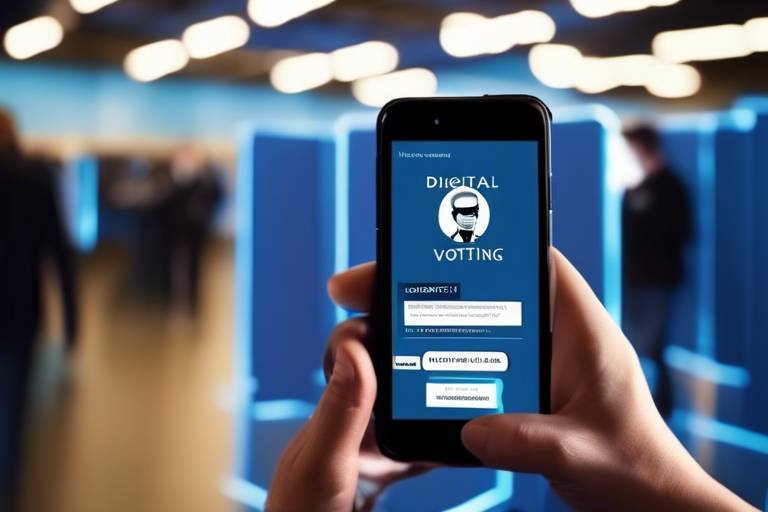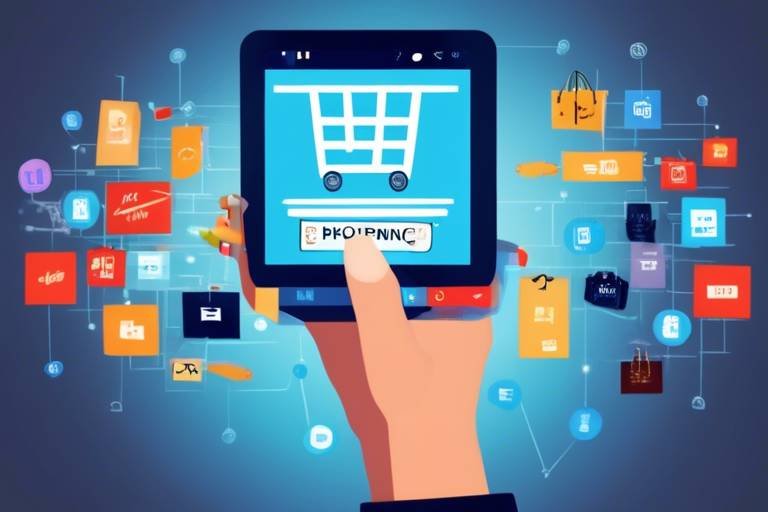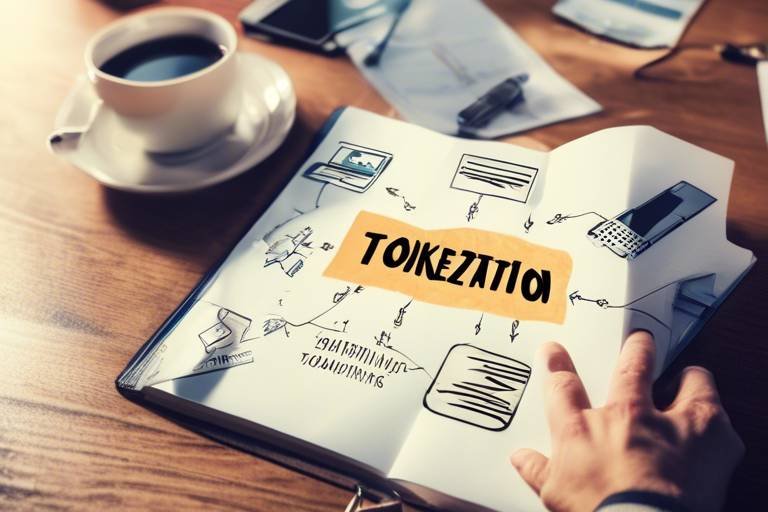Understanding the Role of Blockchain in Consumer Advocacy
In today's fast-paced digital world, consumers are often left feeling powerless and uncertain about the products they purchase and the services they use. Enter blockchain technology, a revolutionary force that is changing the game for consumer advocacy. Imagine a world where you could verify the authenticity of a product with just a few clicks, or where your personal data is shielded from prying eyes. This is not just a dream; it’s becoming a reality thanks to the decentralized nature of blockchain.
At its core, blockchain is a distributed ledger technology that allows multiple parties to access and verify information in real time without the need for a central authority. This means that every transaction is recorded in a way that is immutable and transparent, creating a level of trust that was previously unattainable. For consumers, this translates to enhanced transparency, accountability, and ultimately, empowerment.
As we dive deeper into the implications of blockchain for consumer advocacy, we will explore its fundamental principles, how it enhances transparency, and the ways it builds trust between consumers and brands. We’ll also discuss the challenges that come with implementing this technology and how it can protect consumer rights. So, buckle up as we embark on this enlightening journey through the world of blockchain!
Before we can appreciate how blockchain influences consumer advocacy, it’s essential to understand the basics of this technology. Blockchain operates on a decentralized network of computers, or nodes, that work together to validate and record transactions. Each transaction is grouped into a block, which is then added to a chain of previous blocks, hence the name "blockchain."
The key features that make blockchain so revolutionary include:
- Decentralization: No single entity controls the network, reducing the risk of fraud and manipulation.
- Transparency: All transactions are visible to participants, fostering trust and accountability.
- Security: Each block is cryptographically secured, making it extremely difficult for malicious actors to alter past transactions.
Understanding these fundamentals is crucial as they set the stage for how blockchain can reshape consumer advocacy in various industries. From supply chain transparency to data privacy, the implications are vast and exciting.
One of the most significant advantages of blockchain technology is its ability to provide transparent records that consumers can trust. Imagine being able to trace the journey of your favorite chocolate bar from bean to bar, knowing exactly where it came from and how it was produced. This level of transparency empowers consumers, allowing them to make informed choices and hold businesses accountable for their practices.
Blockchain enables unparalleled traceability in supply chains, allowing consumers to verify the origins of products. For instance, companies like Walmart and IBM have implemented blockchain solutions to track food products, ensuring safety and quality. When you scan a product’s QR code, you can see its entire journey, from farm to store shelf.
Let’s take a closer look at some real-world examples where companies have successfully implemented blockchain for supply chain transparency:
| Company | Industry | Implementation | Benefits |
|---|---|---|---|
| Walmart | Retail | Food traceability | Improved safety and reduced waste |
| Everledger | Diamonds | Provenance tracking | Combatting conflict diamonds |
| De Beers | Jewelry | Blockchain for diamond tracking | Ensuring ethical sourcing |
While the benefits are clear, implementing traceability through blockchain does come with its challenges. Companies face obstacles such as:
- Integration with existing systems
- High initial costs
- Lack of standardization across industries
However, with the right strategies and collaboration, these challenges can be overcome, paving the way for a more transparent future.
In addition to enhancing transparency, blockchain technology also plays a crucial role in protecting consumer data privacy and security. In a world where data breaches are all too common, blockchain offers a solution by allowing consumers to control their personal information. By using decentralized systems, consumers can choose what data to share and with whom, significantly reducing the risk of unauthorized access.
Trust is the cornerstone of consumer advocacy. With blockchain, brands can provide verifiable information that reduces fraud and misrepresentation. Imagine a scenario where you can confidently purchase a luxury handbag, knowing that its authenticity is guaranteed by a blockchain record. This level of assurance fosters a strong relationship between consumers and brands, built on trust.
Blockchain also enables decentralized identity solutions, allowing consumers to manage their identities securely. This means that instead of relying on a central authority to verify your identity, you can use blockchain to maintain control over your personal information while engaging with brands. This not only enhances security but also empowers consumers to assert their identity in the digital marketplace.
Finally, blockchain can positively influence consumer rights by ensuring compliance and accountability. With immutable records, consumers can easily assert their rights and seek redress in case of disputes. This shift towards a more equitable system is crucial for empowering consumers and ensuring they have a voice in the marketplace.
- What is blockchain technology? Blockchain is a decentralized digital ledger that records transactions across multiple computers, ensuring transparency and security.
- How does blockchain enhance consumer trust? By providing verifiable records and reducing fraud, blockchain fosters a trustworthy relationship between consumers and brands.
- Can blockchain protect my personal data? Yes, blockchain allows consumers to control their personal information and choose what data to share.
- What are the challenges of implementing blockchain? Companies may face integration issues, high costs, and a lack of standardization.

The Basics of Blockchain Technology
Blockchain technology is often described as a revolutionary force that has the potential to change the way we conduct transactions, share information, and interact with one another. At its core, blockchain is a decentralized digital ledger that records transactions across multiple computers in such a way that the registered transactions cannot be altered retroactively. This decentralized nature is one of its most significant features, as it ensures that no single entity has control over the entire chain, thereby enhancing security and trust.
To understand blockchain, it's essential to grasp a few key features:
- Decentralization: Unlike traditional databases that are controlled by a central authority, blockchain operates on a network of computers, or nodes, that collectively manage the data.
- Transparency: Every transaction is visible to all participants on the network, which means that everyone can verify the authenticity of transactions without needing to trust a third party.
- Immutability: Once a transaction is recorded on the blockchain, it is nearly impossible to change. This immutability is achieved through cryptographic hashing, which secures the data.
- Consensus Mechanisms: Blockchain uses various consensus protocols, such as Proof of Work or Proof of Stake, to agree on the validity of transactions before they are added to the chain.
Understanding these fundamentals is crucial for grasping the implications of blockchain for consumer advocacy. Imagine a world where every product you purchase comes with a verifiable history, from its origin to its journey through the supply chain. This is not just a dream; it's a reality made possible by blockchain technology. When consumers can see where their products come from and how they were made, they can make informed choices that align with their values, whether that means supporting ethical brands or avoiding products that harm the environment.
Moreover, the decentralized nature of blockchain empowers consumers by reducing reliance on intermediaries. This shift not only lowers costs but also minimizes the risk of fraud and manipulation. In a world where information is often controlled by a few major players, blockchain democratizes access to data, enabling consumers to take charge of their purchasing decisions.
In summary, the basics of blockchain technology provide a foundational understanding of how this innovative system operates. Its decentralized, transparent, and secure characteristics make it a powerful tool for enhancing consumer advocacy. As we delve deeper into the impact of blockchain on consumer trust and rights, it's essential to keep these fundamental concepts in mind, as they lay the groundwork for a more equitable and informed marketplace.
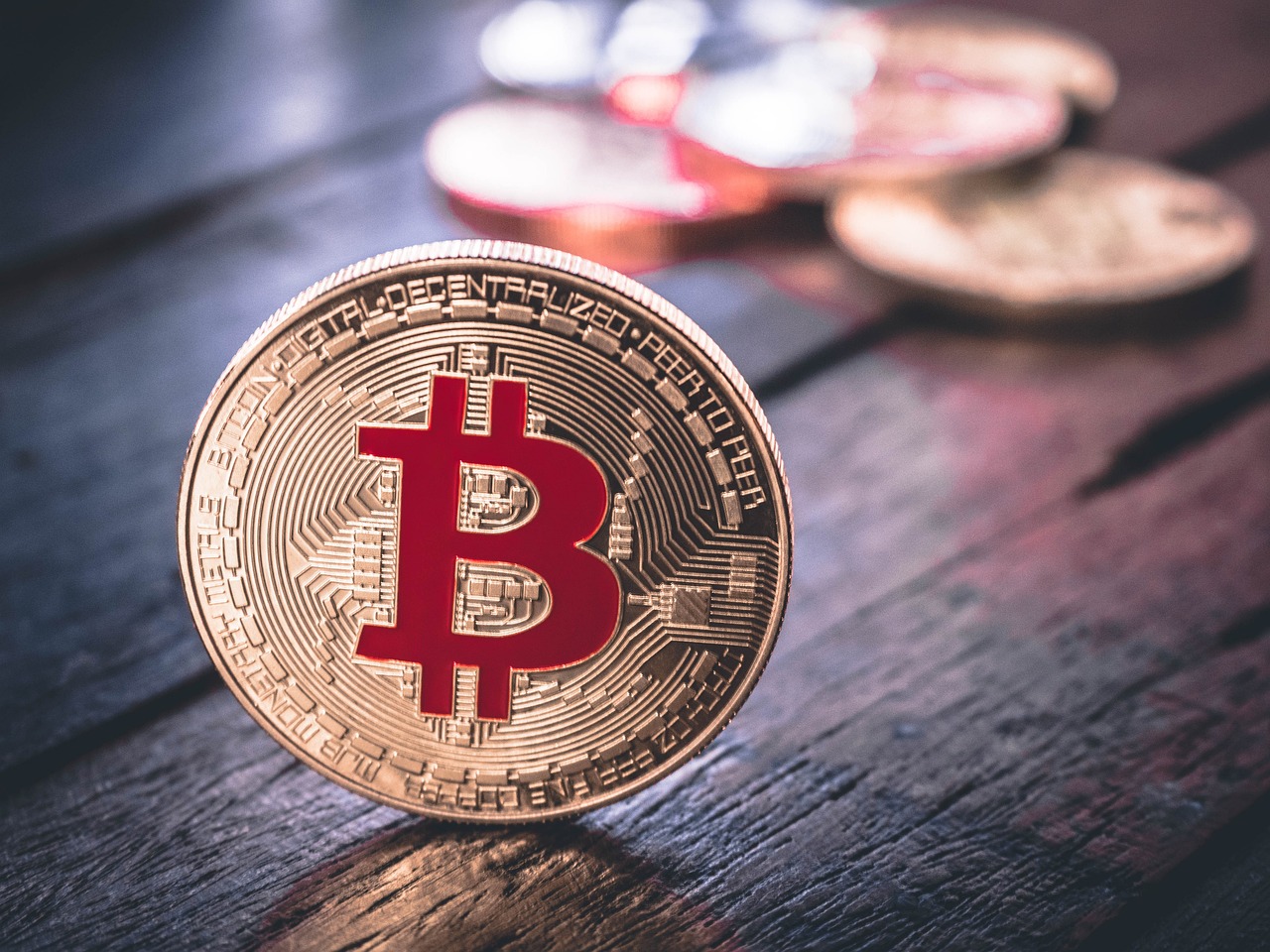
Enhancing Transparency for Consumers
In today's fast-paced world, consumers are becoming increasingly aware of their rights and the importance of transparency in the products and services they choose. Blockchain technology is emerging as a powerful tool to enhance this transparency, reshaping how consumers interact with brands. Imagine being able to trace the journey of your favorite food item from farm to table, or knowing exactly where your clothing was made and under what conditions. With blockchain, these scenarios are not just possible; they're becoming a reality. This technology allows for the creation of immutable records that can be accessed by anyone, ensuring that the information is not only accurate but also reliable.
One of the most significant impacts of blockchain on consumer transparency lies in its ability to provide verified information about products. Traditional supply chains often involve multiple parties, each with their own set of records, which can lead to discrepancies and misinformation. Blockchain eliminates this issue by offering a single, decentralized ledger that all parties can access. This means that consumers can easily verify the authenticity and ethical sourcing of products, fostering a sense of trust that is often lacking in conventional systems.
Consider the food industry, where consumers are increasingly concerned about the origins of their food. With blockchain, brands can provide detailed information about the entire lifecycle of a product. For instance, a consumer could scan a QR code on a package and instantly access data about the farm it came from, the processing methods used, and even the workers involved in its production. This level of transparency not only empowers consumers but also holds businesses accountable for their practices.
Traceability is one of the most compelling features of blockchain that enhances transparency. It allows consumers to track the entire journey of a product, ensuring that they are making informed choices. For example, companies like Walmart and IBM have partnered to create a blockchain-based system that tracks food products from farm to store. This initiative not only helps in reducing food fraud but also enables quick responses to food safety issues. If a contamination is detected, the source can be traced back in seconds, minimizing health risks and ensuring consumer safety.
Several companies have already begun to reap the benefits of implementing blockchain for supply chain transparency. For example, the luxury brand Everledger uses blockchain to track the provenance of diamonds, ensuring that consumers can verify their ethical sourcing. This not only enhances consumer trust but also combats the issue of conflict diamonds in the market. Another notable case is De Beers, which utilizes blockchain to provide a tamper-proof record of its diamonds, allowing consumers to feel confident about their purchases.
While the advantages of blockchain are clear, companies face several challenges when implementing traceability. One significant hurdle is the integration of existing systems with blockchain technology. Many businesses operate on legacy systems that may not easily adapt to new technologies. Additionally, there is the challenge of ensuring that all parties in the supply chain are willing to participate and share data. Overcoming these obstacles requires collaboration and a commitment to transparency from all stakeholders involved.
In conclusion, blockchain technology is revolutionizing consumer transparency by providing a reliable and accessible means of verifying product information. As consumers become more demanding and informed, businesses that embrace this technology will not only enhance their credibility but also foster long-lasting relationships built on trust.
- What is blockchain technology? - Blockchain is a decentralized digital ledger that records transactions across many computers, ensuring that the data is secure and cannot be altered.
- How does blockchain enhance transparency? - It provides a single source of truth that can be accessed by all parties, allowing consumers to verify product origins and authenticity.
- What industries benefit from blockchain? - Industries such as food, fashion, and pharmaceuticals are seeing significant benefits from implementing blockchain for traceability and transparency.
- Are there challenges in implementing blockchain? - Yes, challenges include integrating with existing systems and ensuring all supply chain participants are on board.

Traceability in Supply Chains
In today's fast-paced world, consumers are becoming increasingly conscious of where their products come from and how they are made. This heightened awareness has led to a demand for greater transparency in supply chains, and blockchain technology is stepping up to the plate. Imagine being able to trace every step a product takes from its origin to your hands; this is not just a dream but a reality made possible by blockchain. By providing an immutable and transparent ledger, blockchain allows consumers to verify the authenticity and ethical sourcing of products, which in turn fosters trust between consumers and brands.
One of the most significant advantages of blockchain in supply chains is its ability to offer real-time traceability. For example, if you purchase a chocolate bar, blockchain can provide you with a detailed history of that chocolate, from the cocoa beans' harvest in Ghana to the factory processing in Belgium. You can see the journey it took, the farmers who grew the cocoa, and even the conditions under which it was produced. This level of detail not only satisfies consumer curiosity but also holds companies accountable for their practices.
Several brands have already begun to leverage blockchain for supply chain transparency. For instance, companies like Walmart and Unilever have implemented blockchain solutions to track their products. Walmart uses blockchain to trace the origin of its produce, significantly reducing the time it takes to identify sources of contamination during food safety scares. This swift response can save lives and protect brand reputation.
Moreover, consumers can access this information through user-friendly applications, making it easier than ever to verify the claims brands make about their products. Imagine scanning a QR code on your favorite shirt and instantly learning about the factory it was made in, the labor conditions, and the materials used. This is the power of blockchain, making the invisible visible.
However, while the benefits are clear, implementing traceability through blockchain is not without its challenges. Companies may face obstacles such as the need for industry-wide collaboration, investment in technology, and the integration of existing systems with new blockchain solutions. Overcoming these hurdles requires a collective effort from all stakeholders involved, including manufacturers, suppliers, and retailers.
In conclusion, the integration of blockchain technology in supply chains is revolutionizing the way consumers interact with products. By ensuring traceability, brands can not only enhance their credibility but also empower consumers to make informed choices. As more companies adopt blockchain solutions, we can expect a significant shift in consumer behavior, where transparency and ethical sourcing become the norm rather than the exception.
- What is blockchain technology? Blockchain is a decentralized digital ledger that records transactions across many computers securely and transparently.
- How does blockchain enhance supply chain traceability? It provides a permanent record of all transactions, allowing consumers to track the journey of a product from its source to the final sale.
- What are the benefits of traceability for consumers? It allows consumers to verify the authenticity of products, understand their sourcing, and make ethical purchasing decisions.
- What challenges do companies face in implementing blockchain? Companies may encounter issues such as the need for collaboration, investment in technology, and integration with existing systems.
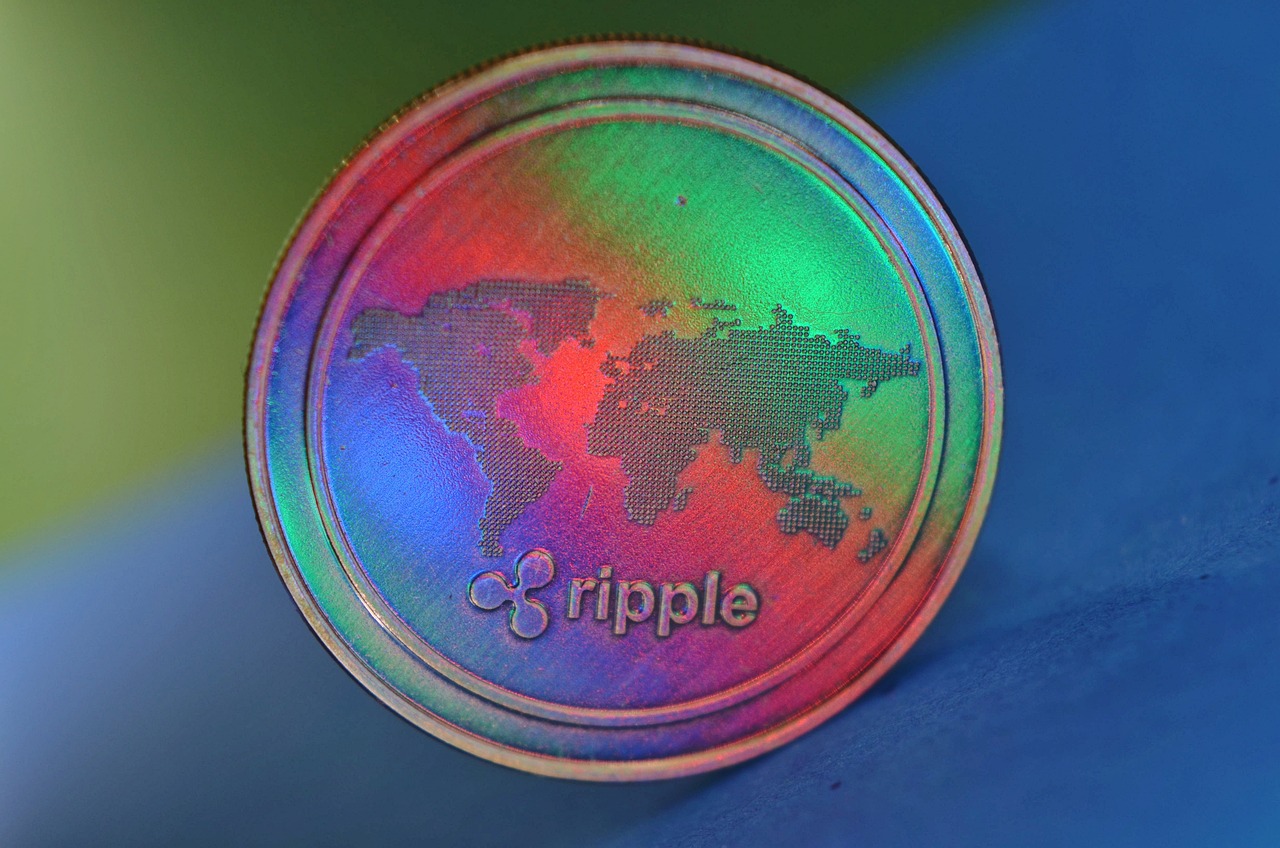
Case Studies of Successful Implementations
When we talk about the transformative power of blockchain technology in consumer advocacy, it's essential to look at real-world examples that illustrate its effectiveness. One standout case is that of Walmart, which has integrated blockchain into its supply chain management. By utilizing IBM's Food Trust blockchain, Walmart can trace the journey of food products from farm to shelf in mere seconds. This not only enhances food safety but also empowers consumers to make informed choices about the products they purchase. Imagine being able to scan a QR code on your food packaging and instantly access its entire supply chain history!
Another compelling example comes from Everledger, a company that uses blockchain to track the provenance of diamonds. This initiative aims to combat the issue of conflict diamonds, which are mined in war zones and sold to finance armed conflict. By providing a transparent ledger of diamond ownership and history, Everledger ensures that consumers can purchase diamonds with confidence, knowing they are ethically sourced. This case exemplifies how blockchain can directly influence consumer choices and promote ethical practices in industries plagued by opacity.
Furthermore, the fashion industry is also embracing blockchain for transparency. Brands like Provenance are using this technology to allow consumers to verify the authenticity and sustainability of their clothing. By scanning a label, customers can see the entire lifecycle of a garment, from the materials used to the factories involved in its production. This not only builds trust but also encourages brands to adopt more sustainable practices. As consumers increasingly demand ethical products, blockchain serves as a powerful tool for accountability.
However, while these implementations showcase the potential of blockchain, they also highlight the challenges companies face. For instance, integrating blockchain into existing systems can be complex and costly. Businesses must navigate technical hurdles and ensure that all stakeholders are on board with the new technology. Despite these challenges, the benefits of enhanced transparency and consumer trust often outweigh the initial obstacles.
In summary, these case studies illustrate that blockchain is not just a buzzword; it's a practical solution that empowers consumers and enhances accountability in various industries. As more companies recognize the value of transparent practices, we can expect to see an increase in successful blockchain implementations that prioritize consumer advocacy.
- What is blockchain technology?
Blockchain is a decentralized digital ledger that records transactions across many computers, ensuring that the record cannot be altered retroactively without the alteration of all subsequent blocks and the consensus of the network. - How does blockchain enhance consumer trust?
By providing transparent and immutable records of transactions, blockchain allows consumers to verify the authenticity and origins of products, fostering a sense of trust between consumers and brands. - What are some challenges of implementing blockchain?
Challenges include technical complexities, integration with existing systems, and the need for all parties in the supply chain to adopt the technology. - Can blockchain protect consumer data?
Yes, blockchain can enhance data privacy and security by allowing consumers to control their personal information and share it selectively.
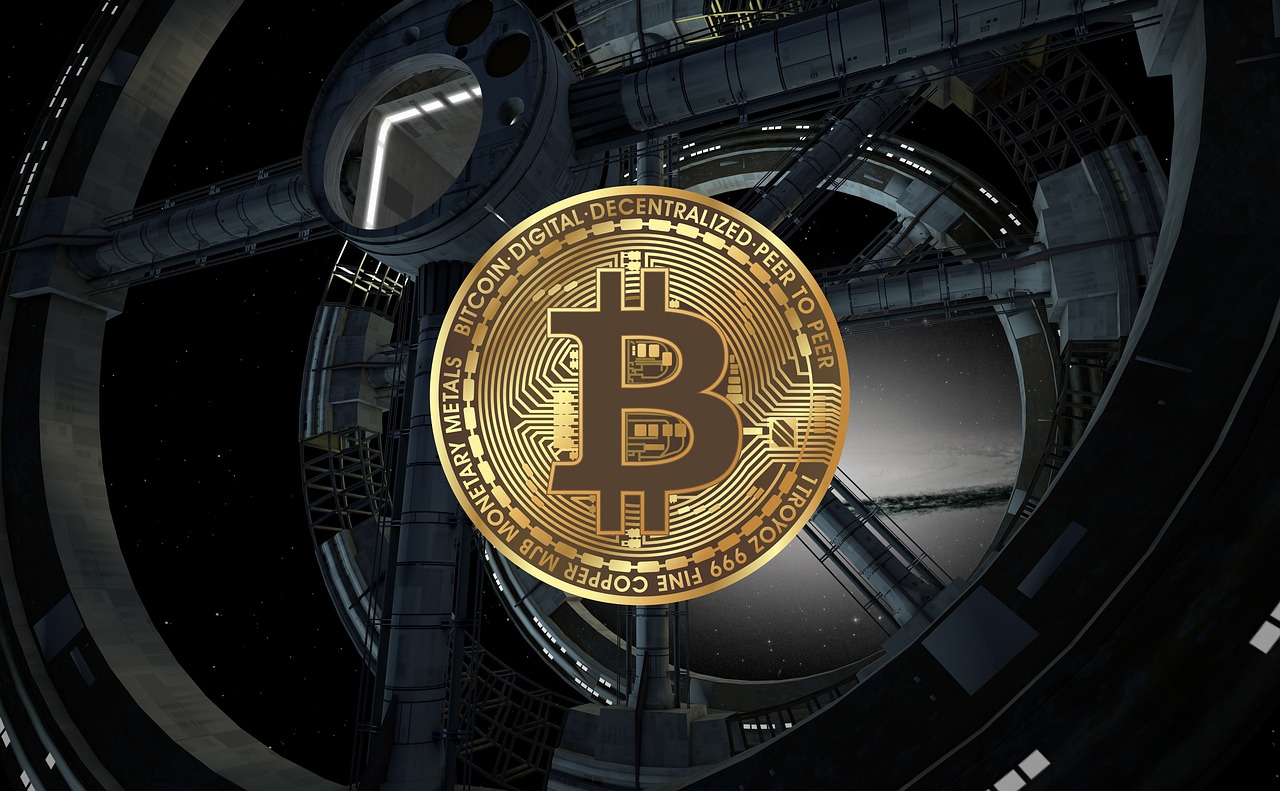
Challenges in Implementing Traceability
Implementing traceability through blockchain technology is not without its hurdles. While the benefits are clear, companies often find themselves navigating a complex landscape filled with various challenges. One of the primary obstacles is the integration of existing systems. Many businesses have legacy systems that are not designed to work with blockchain. This means that significant investments in technology and training may be necessary, which can be daunting for smaller companies.
Moreover, there is the issue of data standardization. For blockchain to be effective in traceability, all parties involved in the supply chain need to agree on a common format for data entry. This can be a significant barrier, especially in industries where multiple stakeholders—from manufacturers to retailers—are involved. Without a unified approach, the data could become fragmented, undermining the very transparency that blockchain aims to provide.
Another challenge is the regulatory landscape. As blockchain technology is still relatively new, regulations surrounding its use are constantly evolving. Companies must stay informed about compliance requirements, which can vary significantly from one jurisdiction to another. This adds an additional layer of complexity, as businesses must ensure that their blockchain solutions not only meet industry standards but also comply with local laws.
Furthermore, there is the concern of consumer awareness. While blockchain offers enhanced transparency, many consumers are still unfamiliar with how it works. This lack of understanding can lead to skepticism about the authenticity of the information provided. Companies need to invest in educating their customers about the benefits of blockchain traceability to build trust and encourage its adoption.
Finally, the cost of implementation cannot be overlooked. Developing a blockchain solution, integrating it with existing systems, and training employees can be expensive. For some businesses, particularly startups or those operating on thin margins, the financial burden may outweigh the perceived benefits of implementing traceability.
In summary, while the potential for blockchain to enhance traceability is immense, companies must navigate a myriad of challenges, including system integration, data standardization, regulatory compliance, consumer awareness, and cost. Addressing these issues head-on is crucial for businesses looking to leverage blockchain technology effectively.
- What is blockchain traceability?
Blockchain traceability refers to the capability of tracking the history and origin of products through a blockchain network, ensuring transparency and accountability in the supply chain.
- How can blockchain improve consumer trust?
By providing verifiable information and reducing fraud, blockchain enhances trust between consumers and brands, ensuring that consumers can make informed decisions.
- What are the costs associated with implementing blockchain?
Costs can vary widely depending on the scale of implementation, existing infrastructure, and the need for employee training. It’s essential to conduct a thorough cost-benefit analysis before proceeding.
- Are there any industries that benefit more from blockchain traceability?
Industries such as food and beverage, pharmaceuticals, and luxury goods often see significant benefits from blockchain traceability due to the importance of product authenticity and safety.

Consumer Data Privacy and Security
In today's digital age, where our personal information is often just a few clicks away from being compromised, have become paramount. With the rise of data breaches and privacy scandals, consumers are increasingly concerned about how their information is being handled. This is where blockchain technology steps in, offering a revolutionary solution that not only enhances security but also gives consumers more control over their personal data.
At its core, blockchain operates on a decentralized network, which means that no single entity has control over the data. This decentralization is crucial because it reduces the risk of a single point of failure that can be exploited by hackers. Imagine your personal information stored in a vault that is not only locked but also spread across multiple locations; this is essentially how blockchain secures data. Each transaction or piece of information is encrypted and linked to the previous one, creating a chain of blocks that is incredibly difficult to alter or hack.
One of the most significant benefits of blockchain technology is its ability to enhance data privacy. With traditional systems, consumers often have to rely on companies to protect their information, which can lead to vulnerabilities. However, with blockchain, consumers can maintain control over their data. They can choose what to share, with whom, and for how long. For instance, a consumer might provide their data to a company for a limited time and then revoke access once the purpose has been fulfilled. This level of control is empowering and fosters a sense of trust between consumers and brands.
Moreover, blockchain can facilitate the creation of decentralized identity solutions. These solutions allow consumers to create digital identities that are verified through the blockchain. Instead of relying on traditional forms of identification, which can be easily forged or stolen, consumers can use their blockchain-based identity to engage with brands securely. This not only protects their personal information but also streamlines various processes, such as online transactions and service sign-ups. Think of it as having a secure digital passport that verifies your identity without exposing all your personal details.
However, while blockchain technology offers promising solutions for data privacy and security, it is not without its challenges. Implementing blockchain systems requires significant investment and technical expertise. Companies must navigate the complexities of integrating blockchain into their existing infrastructures, which can be daunting. Additionally, there is a learning curve for consumers who are not familiar with how blockchain works. It's essential for companies to educate their customers about the benefits of blockchain to gain their trust and encourage adoption.
In conclusion, the potential of blockchain technology to enhance consumer data privacy and security is immense. By providing a decentralized framework for data management, it empowers consumers to take control of their personal information, fosters trust between consumers and brands, and reduces the risk of data breaches. As more companies begin to adopt blockchain solutions, we can expect to see a significant shift in how consumer data is handled, leading to a more secure and transparent digital landscape.
- What is blockchain technology? Blockchain is a decentralized digital ledger that records transactions across multiple computers securely, making it nearly impossible to alter or hack.
- How does blockchain enhance data privacy? Blockchain allows consumers to control their data by enabling them to choose what information to share and with whom, reducing reliance on companies to protect their data.
- What are decentralized identity solutions? These are systems that allow consumers to create and manage digital identities securely on the blockchain, protecting personal information while engaging with brands.
- What challenges do companies face when implementing blockchain? Companies may encounter significant costs, technical complexities, and the need for consumer education when integrating blockchain into their systems.

Building Trust Between Consumers and Brands
Trust is the bedrock of any relationship, and when it comes to the dynamic between consumers and brands, it’s no different. In today's fast-paced digital age, consumers are increasingly skeptical of corporations and their practices. Enter blockchain technology, a game-changer that is revolutionizing how trust is built and maintained. By providing a transparent and immutable record of transactions, blockchain empowers consumers with verifiable information, making it easier to discern which brands are genuinely committed to ethical practices and which are merely paying lip service.
Imagine walking into a store and knowing exactly where every product came from, how it was made, and who was involved in the process. This level of transparency is not just a dream; it’s becoming a reality thanks to blockchain. With every transaction recorded on a decentralized ledger, consumers can hold brands accountable for their claims. This newfound power shifts the balance, allowing consumers to make informed decisions based on trust rather than marketing gimmicks.
Moreover, blockchain significantly reduces the risk of fraud. In a world where counterfeit products can easily infiltrate the market, the ability to verify the authenticity of goods is invaluable. For instance, luxury brands are leveraging blockchain to ensure that their products are genuine and not knock-offs. When consumers can verify the authenticity of a product through a simple scan of a QR code linked to the blockchain, it builds an unshakeable trust between them and the brand.
In addition to product authenticity, blockchain technology also facilitates decentralized identity solutions. This means that consumers have more control over their personal information. Instead of relying on brands to manage their data, consumers can securely manage their identities and share only the necessary information with brands. This not only enhances security but also fosters a sense of trust, as consumers feel empowered and in control of their own data.
However, while blockchain offers incredible potential for building trust, it’s essential to recognize that not all brands are equally equipped to implement this technology effectively. Companies must invest in the right infrastructure and educate their teams on how to leverage blockchain for consumer trust. The journey to transparency and trust-building is ongoing, and brands that embrace this change will likely see stronger relationships with their consumers.
Ultimately, the relationship between consumers and brands is evolving. With blockchain technology paving the way for greater transparency and accountability, consumers are no longer passive participants; they are informed advocates. This transformation is not just beneficial for consumers; brands that prioritize trust and transparency will likely see an increase in customer loyalty and satisfaction. So, as we move forward, the question remains: are brands ready to step up and embrace the trust-building power of blockchain?
- What is blockchain technology?
Blockchain is a decentralized digital ledger that records transactions across many computers in a way that the registered transactions cannot be altered retroactively. - How does blockchain enhance consumer trust?
By providing transparent and verifiable records of transactions, blockchain allows consumers to verify the authenticity and ethical practices of brands. - What are decentralized identity solutions?
These solutions enable consumers to manage their identities securely without relying on brands, giving them more control over their personal information. - Can blockchain help reduce fraud?
Yes, blockchain's transparency and immutability help verify product authenticity, thus reducing the risk of counterfeit goods.

Decentralized Identity Solutions
In today's digital age, where our personal information is often scattered across multiple platforms and vulnerable to breaches, the concept of emerges as a beacon of hope. Imagine having complete control over your own identity, where you decide who can access your information and under what circumstances. This is precisely what blockchain technology offers to consumers—an innovative way to manage identities securely and privately.
Decentralized identity solutions leverage the power of blockchain to create a system where individuals can store their identity information on a distributed network rather than on a central server. This means that instead of relying on a single entity to verify your identity, the verification process is shared across the network, enhancing security and reducing the risk of identity theft. With a decentralized approach, your personal data is not just locked away in a database waiting to be hacked; it’s encrypted, fragmented, and stored across multiple locations, making it incredibly difficult for malicious actors to access.
One of the standout features of decentralized identity solutions is the concept of self-sovereignty. This means that individuals have ownership of their identity data, allowing them to share only what is necessary for a specific transaction or interaction. For example, if you’re signing up for a new service, you can provide just your email and age without having to reveal your entire identity or other sensitive information. This level of control not only protects your privacy but also builds trust with brands and service providers, as they can only access the information you choose to share.
Moreover, decentralized identity solutions can significantly streamline processes that typically require extensive verification. Consider the hassle of verifying your identity for different services—whether it’s banking, healthcare, or e-commerce. With blockchain, once your identity is verified, you can use it across various platforms without having to go through the verification process repeatedly. This not only saves time but also enhances user experience, making interactions smoother and more efficient.
However, the implementation of decentralized identity solutions is not without its challenges. There are concerns about the digital divide, as not everyone has equal access to the technology required to manage their digital identities. Additionally, the legal and regulatory frameworks surrounding decentralized identities are still evolving. Companies and consumers alike must navigate these complexities to fully realize the potential of this transformative approach.
In conclusion, decentralized identity solutions represent a significant leap toward empowering consumers in the digital realm. By offering enhanced control, privacy, and security, these solutions not only safeguard personal information but also foster a stronger relationship between consumers and brands. As we continue to embrace the digital landscape, understanding and utilizing decentralized identity solutions will be crucial for protecting our identities and asserting our rights in an increasingly interconnected world.
- What is a decentralized identity? A decentralized identity is an identity that is managed and owned by the individual rather than a central authority, allowing for greater control and privacy.
- How does blockchain enhance identity security? Blockchain enhances identity security by encrypting data and distributing it across a network, making it harder for unauthorized access and breaches to occur.
- Can I use decentralized identity solutions for all online services? While many services are beginning to adopt decentralized identity solutions, not all platforms currently support them. However, the trend is growing as awareness increases.
- What are the benefits of using a decentralized identity? Benefits include enhanced privacy, control over personal data, reduced risk of identity theft, and a streamlined verification process.

Impact on Consumer Rights
The advent of blockchain technology is not just a technological revolution; it’s a significant shift in how we understand and enforce consumer rights. Imagine a world where every transaction is recorded on an immutable ledger, where consumers have the power to verify their purchases and hold companies accountable for their actions. This is the promise of blockchain—a tool that can transform the landscape of consumer advocacy by ensuring compliance and accountability at every level.
One of the most profound impacts of blockchain on consumer rights lies in its ability to provide transparency. Consumers today are more informed than ever, and they demand to know where their products come from, how they are made, and the ethical practices behind them. Blockchain enables this by allowing consumers to trace products back to their origins. For instance, if a consumer buys a piece of clothing, they can scan a QR code and see the entire journey of that garment—from the raw materials used to the factory where it was produced. This level of transparency not only empowers consumers but also forces brands to maintain higher standards.
Moreover, blockchain enhances consumer rights through the concept of decentralized identity. In a world increasingly concerned about data privacy, blockchain offers a solution where consumers can manage their personal information securely. Instead of relying on centralized databases that are vulnerable to breaches, blockchain allows individuals to control their own data. This means that consumers can choose what information to share with brands, and they can revoke that access at any time. It’s like having a digital vault for your personal information, where you decide who gets to look inside.
Additionally, blockchain can serve as a powerful tool for enforcing consumer rights in cases of fraud or malpractice. With traditional systems, proving a violation can be a cumbersome process, often requiring extensive documentation and legal battles. However, with blockchain, every transaction is time-stamped and recorded, making it easier for consumers to present evidence in disputes. If a company fails to deliver a product or misrepresents its services, consumers can reference the blockchain to substantiate their claims. This shift not only protects consumers but also encourages businesses to operate with integrity, knowing that their actions are permanently recorded.
While the potential benefits of blockchain for consumer rights are immense, it’s important to acknowledge that challenges remain. Not every consumer is technologically savvy, and the transition to blockchain-based systems requires education and adaptation. Furthermore, regulatory frameworks need to catch up to this rapidly evolving technology to ensure that consumer rights are protected. As we move forward, collaboration between tech developers, businesses, and policymakers will be crucial in harnessing the full potential of blockchain for consumer advocacy.
In summary, the impact of blockchain on consumer rights is profound and multifaceted. It provides a platform for transparency, empowers individuals to control their data, and enhances the enforcement of rights in a way that was previously unimaginable. As we continue to explore the capabilities of blockchain, it is essential to focus on building systems that prioritize consumer empowerment and accountability, ensuring that the rights of consumers are not just recognized but actively upheld.
- What is blockchain technology? Blockchain is a decentralized digital ledger that records transactions across many computers in a way that the registered transactions cannot be altered retroactively.
- How does blockchain enhance consumer rights? By providing transparency, enabling decentralized identity management, and facilitating easier enforcement of rights through verifiable transactions.
- Are there challenges in implementing blockchain for consumer rights? Yes, challenges include the need for consumer education, technological adaptation, and the establishment of regulatory frameworks.
Frequently Asked Questions
-
What is blockchain technology?
Blockchain technology is a decentralized digital ledger that records transactions across many computers. This ensures that the information is secure, transparent, and cannot be altered retroactively without the consensus of the network. Imagine it as a digital notebook that everyone can see and write in, but once something is written, it can’t be erased!
-
How does blockchain enhance consumer transparency?
Blockchain enhances consumer transparency by providing a public record of transactions that anyone can access. This means consumers can trace the origins of products, verify their authenticity, and see how companies operate. It’s like having a clear window into a brand’s practices, allowing consumers to make informed decisions.
-
Can blockchain improve data privacy for consumers?
Absolutely! Blockchain can improve data privacy by allowing consumers to control their personal information. Instead of companies holding onto your data, you can manage who sees it and when. Think of it as having a personal vault where you decide who gets the key.
-
What are decentralized identity solutions?
Decentralized identity solutions are systems that allow consumers to manage their identities securely using blockchain. This means you can verify who you are without having to share unnecessary personal information. It’s like having a digital ID that’s safe and controlled by you!
-
How does blockchain help in building trust between consumers and brands?
Blockchain helps build trust by providing verifiable information about products and services. When consumers can see the entire journey of a product, from creation to sale, they are more likely to trust a brand. It’s like a badge of honor that proves a brand is doing what they claim.
-
What challenges do companies face when implementing blockchain?
Companies may face several challenges when implementing blockchain, such as high initial costs, the need for technical expertise, and resistance to change. However, with the right strategy and commitment, these hurdles can be overcome, paving the way for a more transparent future.
-
How can blockchain empower consumer rights?
Blockchain can empower consumer rights by ensuring that companies comply with regulations and are held accountable for their actions. This technology can provide consumers with the tools to assert their rights effectively, making it easier to seek justice when needed.






